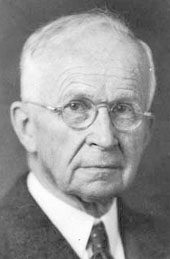The following are a couple of paragraphs cut from today’s sermon. Thought it stood, pretty well, on its own…
We religious liberals are notoriously hard to pin down. For much of the twentieth century Unitarian Universalists heavily marked by a naturalistic humanism and the scientific spirit, it was said of us that we believed in one God, at most. In recent decades with the rise of a new spirituality, what I think is best called a New Universalism that line has shifted and it is said of us that we believe in one God, more or less. Not a great laugh line, but it points to something about us that is important.
In general I think the best summation of who we are in all our slipperiness, of our unique approach to religion was worked out by Earl Morse Wilbur, who for the first three decades of the twentieth century taught, and served for a while as president at what we now call Starr King School for the Ministry, our UU seminary in Berkeley, California. Professor Wilbur wrote that he saw three things that we’ve held in common across the generations. “(F)irst, complete mental freedom in religion rather than bondage to creeds or confessions; second, the unrestricted use of reason in religion, rather than reliance upon external authority or past tradition; and third, generous tolerance of differing religious views and usages rather than insistence upon uniformity in doctrine, worship or polity.”
I find he really put his finger on our style, what marks out liberal religion within the sea of Faith. No doubt even with that one God more or less, we’re definitely children of the West, heirs to the biblical traditions of Judaism and most of all, Christianity. And, just as truly we are so profoundly marked by the wisdom traditions of Athens as well as many of the currents of earth-centered spiritualities.
And, while it has often been an uneasy thing, we’re the only religious tradition to try to bring both theists and nontheists together into one spiritual community. One important consequence of this openness is how many people marked by Buddhism and other traditions of the East have joined us over the last three decades, and with that an incredible richness has continued to broaden and deepen us.
Out of this unlikely alliance, this association of those who like to proclaim, “I don’t belong to an organized religion, I’m a Unitarian Universalist,” something wondrous has birthed. I think it comes to us thanks to those three old principles of freedom, reason and tolerance, but out of this we’ve found new perspectives, digging deep wells of the spirit, finding life-giving waters to quench a thirsting world. And that is our New Universalism.













